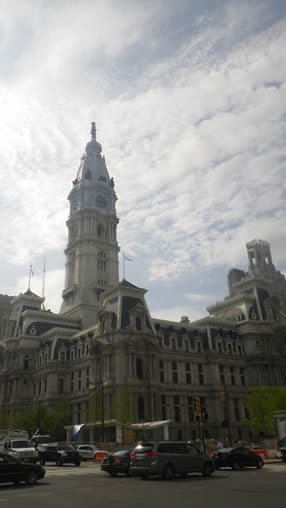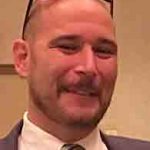Pennsylvania’s Hemp History

«Make the most of the Indian Hemp seed: Sow it everywhere!» George Washington, Philadelphia 1794
By Chris Goldstein @freedomisgreen
Read the full article in the Freedom Leaf Ezine
Think of Philly.
Rocky. Cheese steaks. Baseball. Hockey. Hall and Oates. The Mummer’s Parade. Ben Franklin. Harriet Tubman. The Declaration of Independence. The Constitution.
Not just a bell with a crack, but Liberty itself. The ideals for freedom in America were argued here. Then they were written down.
Cannabis has also been an important part of the fabric of this town for more almost 400 years.
Now think of Quakers. No, not the company that makes oatmeal and granola bars. The Religious Society of Friends; one of the most prolific service organizations in the world.
Quakers run girls schools in Palestine, deliver food in Africa and work for social justice in America. Since high school, I have regularly attended Quaker meetings.
William Penn founded Philadelphia in 1681 after the oppression and even execution of his fellow Quakers. This wasn’t just happening in England, but also here in the colonies. Mary Dyer was killed by hanging on the Boston Common in 1660 simply for keeping her Quaker faith. The nascent City of Brotherly Love would break with Puritan New England by allowing all forms of religion without state control.
Penn was a fascinating mix of businessman and philosopher. His impact lives on today. Our unique republic was clearly laid out years before the American Revolution in his «Frames of Government.»
Penn’s careful writings on religious freedom and equal rights were folded into our country’s founding documents. They are the core of our nation.
Penn was also a capitalist. Interestingly, hemp was central to his game. Local historian and author Les Stark of the Keystone Cannabis Coalition points out:
In 1683, one of the first measures passed by the Pennsylvania General Assembly was «An act for the encouraging of raising hemp in Pennsylvania» by making the fiber legal tender at four pence per pound to alleviate currency shortages and to promote commerce. In 1685, William Penn noted great quantities already cultivated in his province and declared that hemp would be among the staples of trade here.
Philly is still the home to the worldwide religion of Quakerism. In the 1800’s they helped abolish slavery and in the 20th century they fought for civil rights. Their peaceful effort continues today.
Fast forward to 1794: Philadelphia was the nation’s capital. George Washington was serving as the first President and living across from Independence Hall when he penned this iconic line in a letter to his plantation gardener:
«Make the most of the Indian Hemp seed: Sow it everywhere!»
For about 140 years, the country followed that advice.
George Washington and Thomas Jefferson were also avid pipe smoking connoisseurs. They traded recipes of herbal blends to mix with tobacco. Many speculate that the pair may have even puffed on some early strains of Cannabis Sativa. Smoke-able marijuana was known then as India Hemp because «ganjika» was brought to the Colonies from India via British slaves. Washington’s gardeners were tasked with cultivating a small plot of India Hemp, meticulously separating out the male plants.. Does this sound familiar?
Then came marijuana prohibition. Two Pennsylvanians had pivotal roles on either side of the issue.
Harry Anslinger, who first criminalized cannabis in the 1930’s, was born in Altoona, Pa and is buried in Hollidaysburg. He was the first drug czar, produced the film “Reefer Madness” and eventually convinced Congress to pass the “Marihuana Tax Stamp Act.” This was the first, broad, federal prohibition of marijuana.
Anslinger was a racist. One of the most disturbing and disgusting arguments Anslinger used on politicians: “»Reefer makes darkies think they’re as good as white men.”
Philadelphia and the rest of urban America began to follow Anslinger’s design of arresting people of color for pot. This practice has continued for more than 70 years.
In 1969, the U.S. Supreme Court ruled that Anslinger’s law, the Marihuana Tax Stamp Act, was unconstitutional and struck it down. President Nixon immediately rushed the Controlled Substances Act through Congress in 1970. Marijuana was designated as a Schedule I narcotic, alongside heroin, in what was supposed to be a temporary measure.
Nixon appointed a blue-ribbon commission to study the issue and brought another important Pennsylvanian into play.
Raymond P. Shafer was a conservative Republican and constitutional scholar who had just finished two terms as Pennsylvania’s governor. Nixon tapped Shafer to lead the National Commission on Marijuana and Drug Abuse.
Richard Nixon assumed that his hand-picked group would back up his plans. But Shafer and his fellow commissioners, eventually, saw the truth.
In 1972, after 18 months of study, Shafer delivered the commission’s conclusions, calling for personal possession and non-remunerative sales of marijuana to be decriminalized and for Cannabis to be removed from the CSA altogether.
The prophetic report (that everyone should read) was called Marihuana: A Signal of Misunderstanding. One of the strongest lines in Shafer’s report cuts back to William Penn’s core ideals and those in the Bill of Rights itself, stating:
«We have guided our decision-making by the belief that the state is obliged to justify restraints on individual behavior. Too often individual freedoms are submerged in the passions of the moment, and when that happens, the public policy may be determined more by rhetoric than by reason.»
Nixon ignored the thoughtful recommendations. Instead, he committed American to his worst legacy, the so-called War on Drugs.
Back To The Future In Philly
For the last 40 years, the misguided policy prohibition of marijuana has affected millions of us. Hundreds of thousands of African Americans, Latinos and Hispanic Americans, as well as Caucasians, continue to be arrested every year across the country. We can also never forget the loving parents who lose custody of their children or the scores of jobs and housing denied. All of this persecution is over small amounts of cannabis.
Arrests are just the tip of the iceberg too. Today, Philly is particularly over-zealous with civil forfeiture. This Kafkaesque program sees people losing homes, cars and bank accounts with little legal recourse. They do not even have to be charged or convicted of a crime.
But now there is tremendous good news. Philadelphia has come out of the darkest of times by enacting decriminalization. The City Council voted in June to issue $25 tickets instead of handcuffs. The Philly Police Department has vowed to implement the new policy. This will stop the custodial arrest of more than 4,000 people every year.
Still, the federal government must take action. State and municipal reforms are great progress but they are not enough.
Legalizing marijuana isn’t just for cannabis consumers. This policy, for too long, has been a convenient excuse to over-police our cities, harass people of color and militarize law enforcement.
Tax revenue, canna-businesses and industry profits are the cream-on-top for success on this issue. There is something much bigger and more valuable than the purely economic benefits.
Ending marijuana prohibition is one logical step towards bringing greater freedom and equality to all Americans … at a time when we need it the most.
Read the full article in the Freedom Leaf Ezine

